Mental Health Nursing: Standards, Competencies and Public Perceptions
VerifiedAdded on 2023/05/28
|5
|892
|200
Essay
AI Summary
This essay explores the perceptions of mental health problems among the general population, attributing them to factors such as drug abuse, genetic reasons, and spiritual causes. It outlines the standards of mental health nursing data collection, emphasizing accurate and comprehensive data collection through observation, interviews, and physical and mental health assessments. The essay also highlights the importance of developing unique nursing care plans, interdisciplinary collaboration, and the application of relevant theories. Furthermore, it discusses the core competencies of mental health nurses, including understanding mental illness, managing personal reactions, and maintaining collaborative therapeutic relationships with patients. The overall aim is to provide a foundation for training and practice essential for expert care in mental health nursing. Desklib offers a variety of solved assignments and past papers for students.
1 out of 5
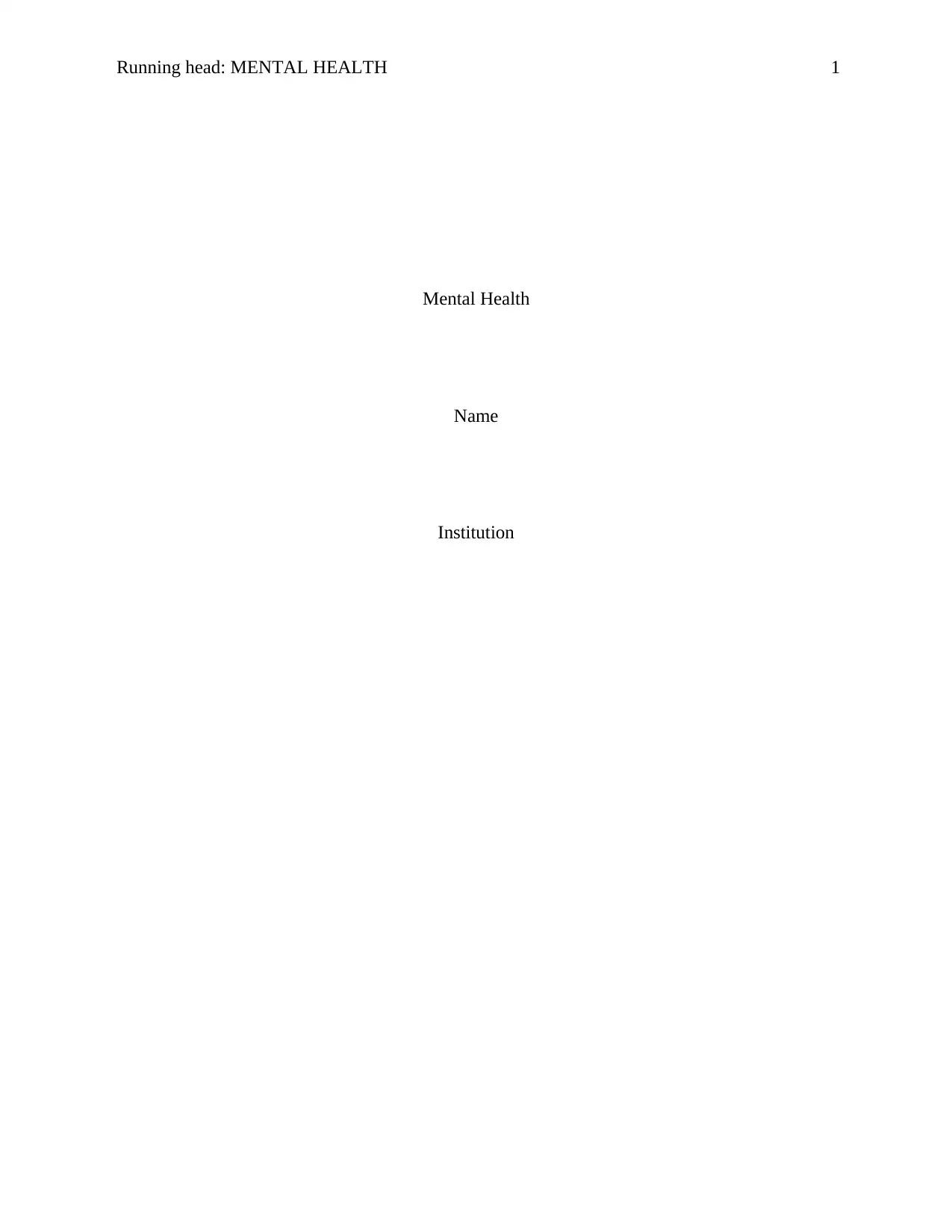
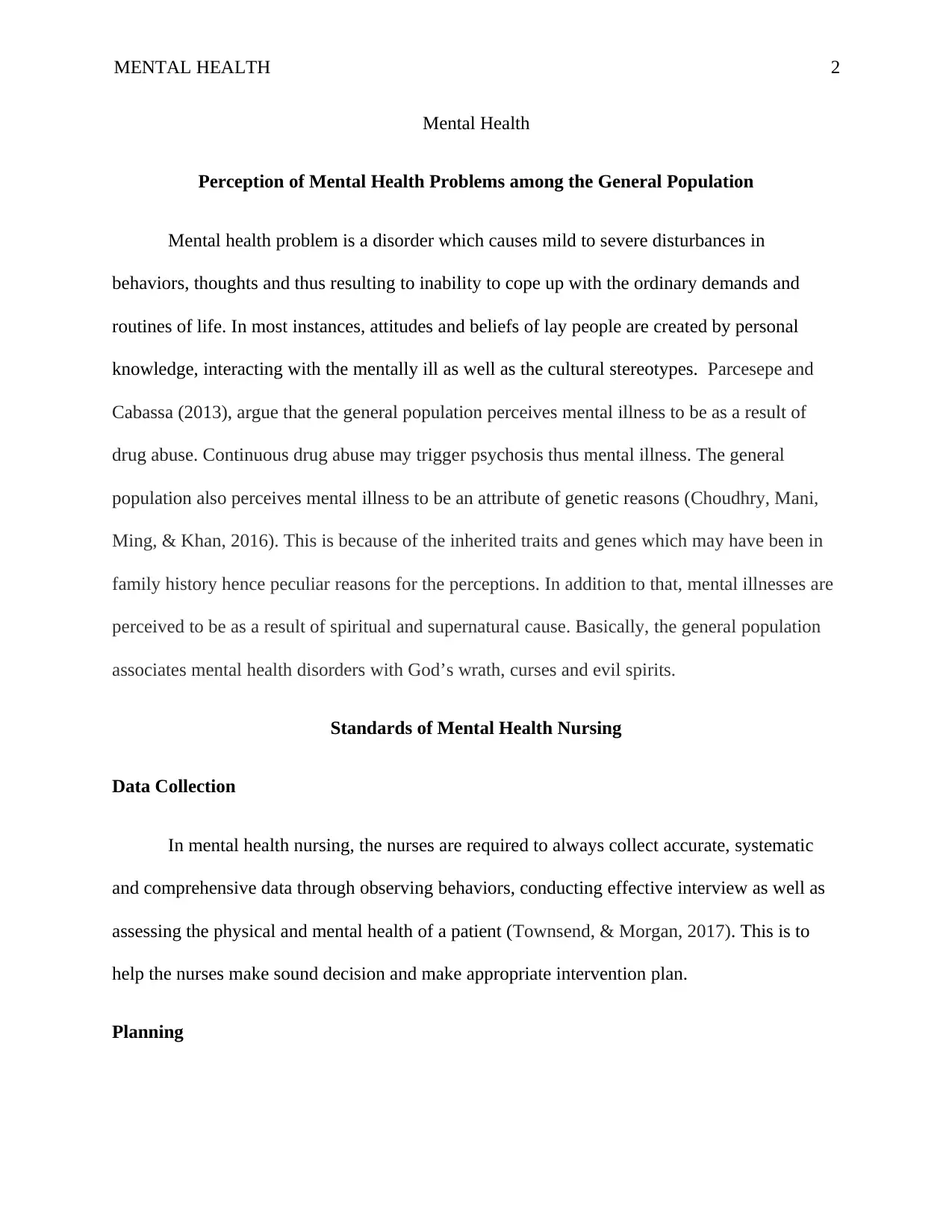
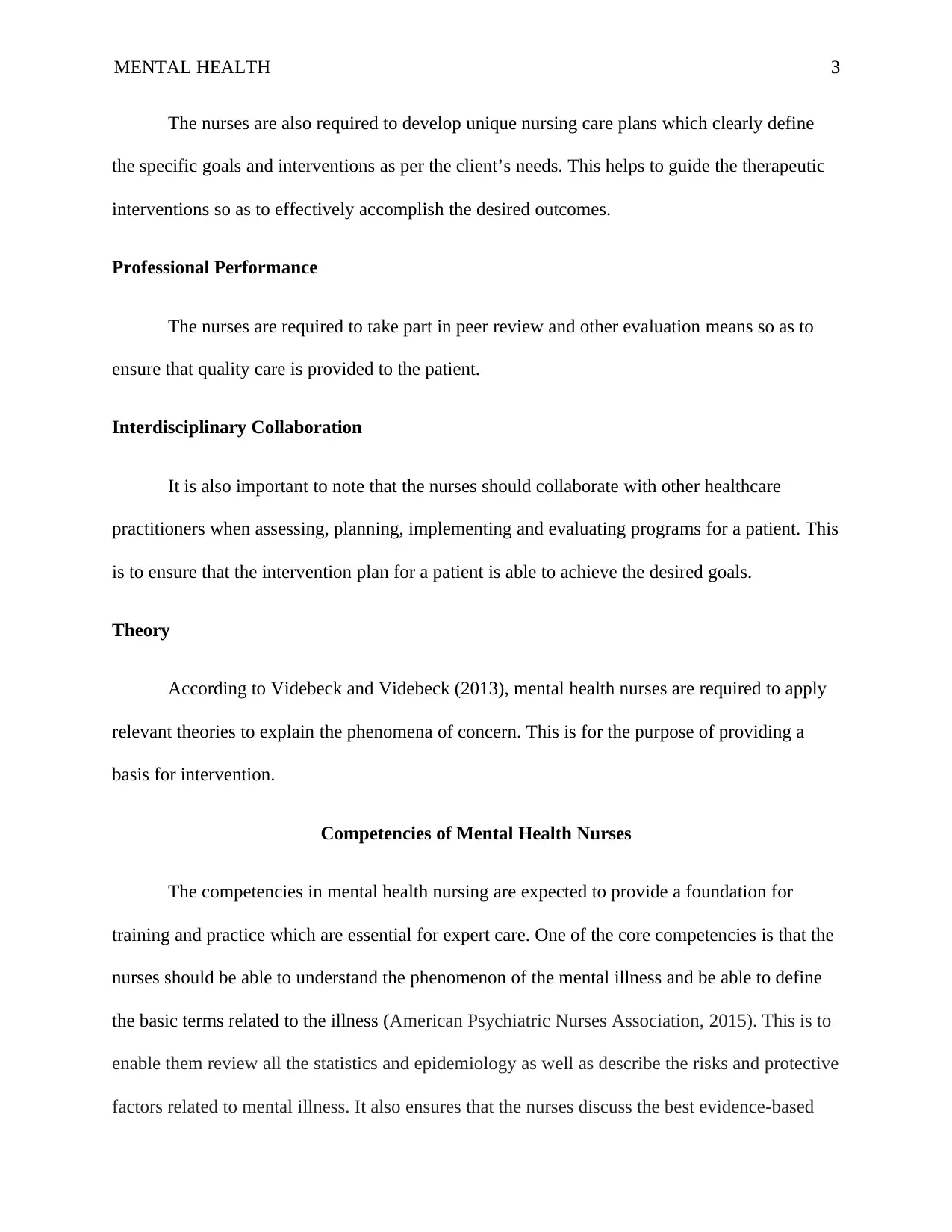

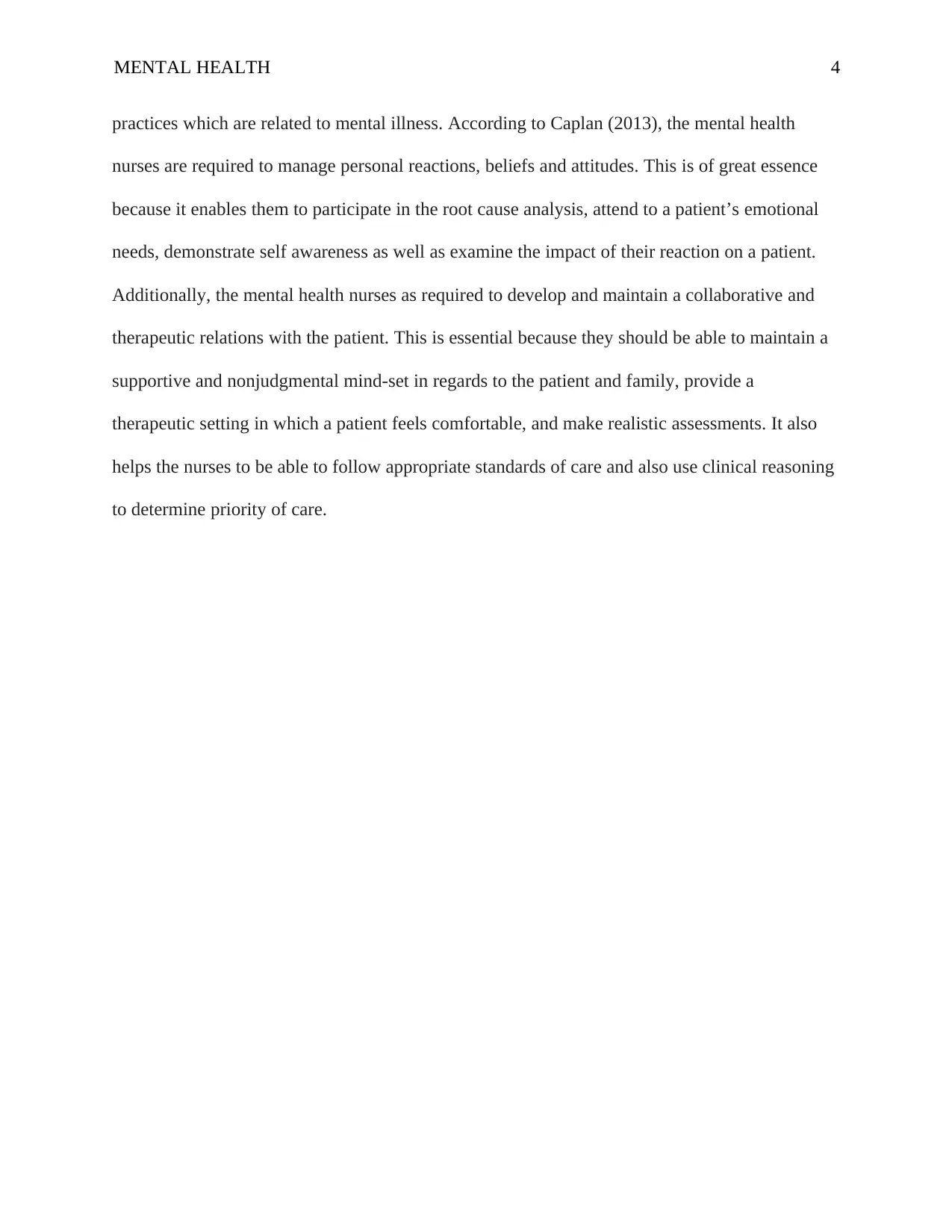
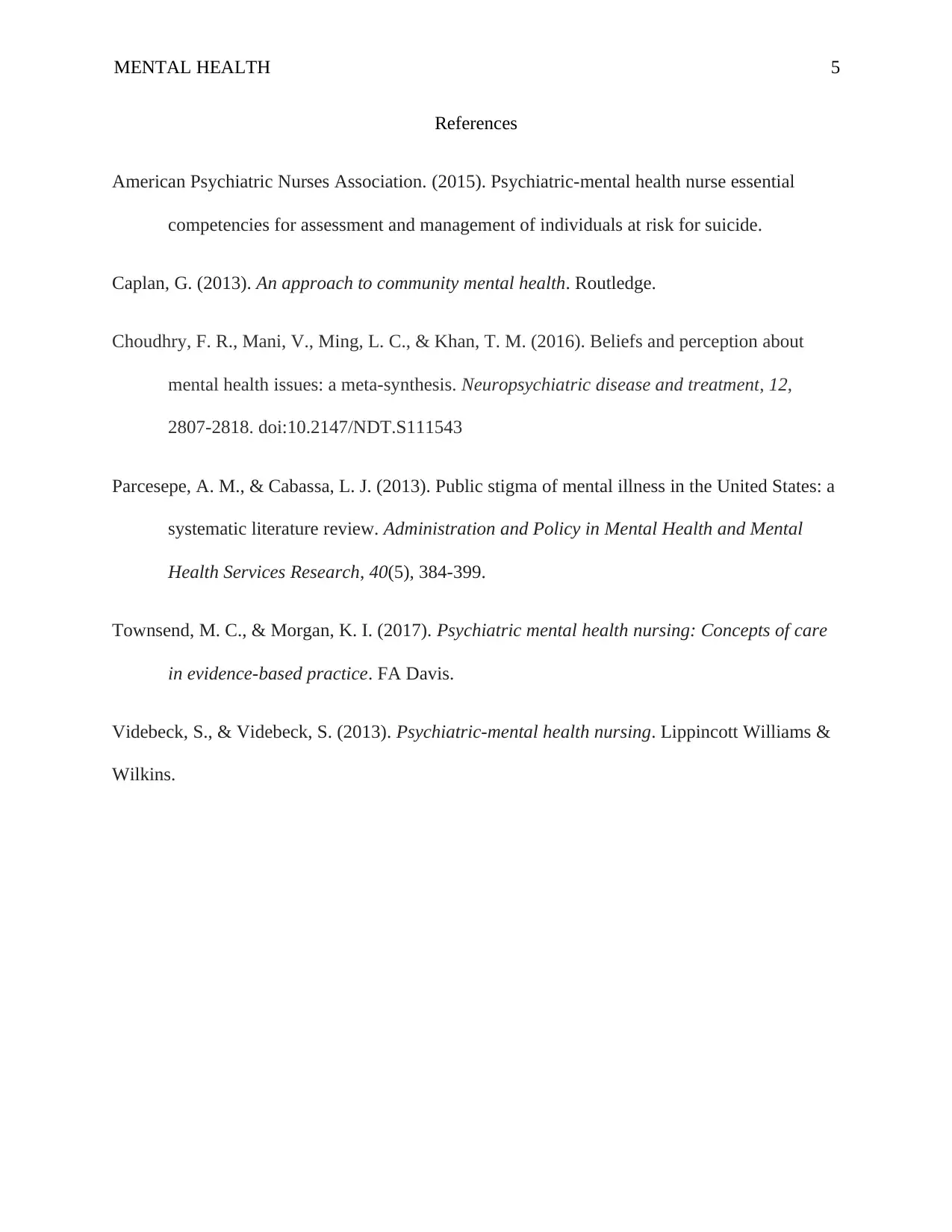






![[object Object]](/_next/static/media/star-bottom.7253800d.svg)